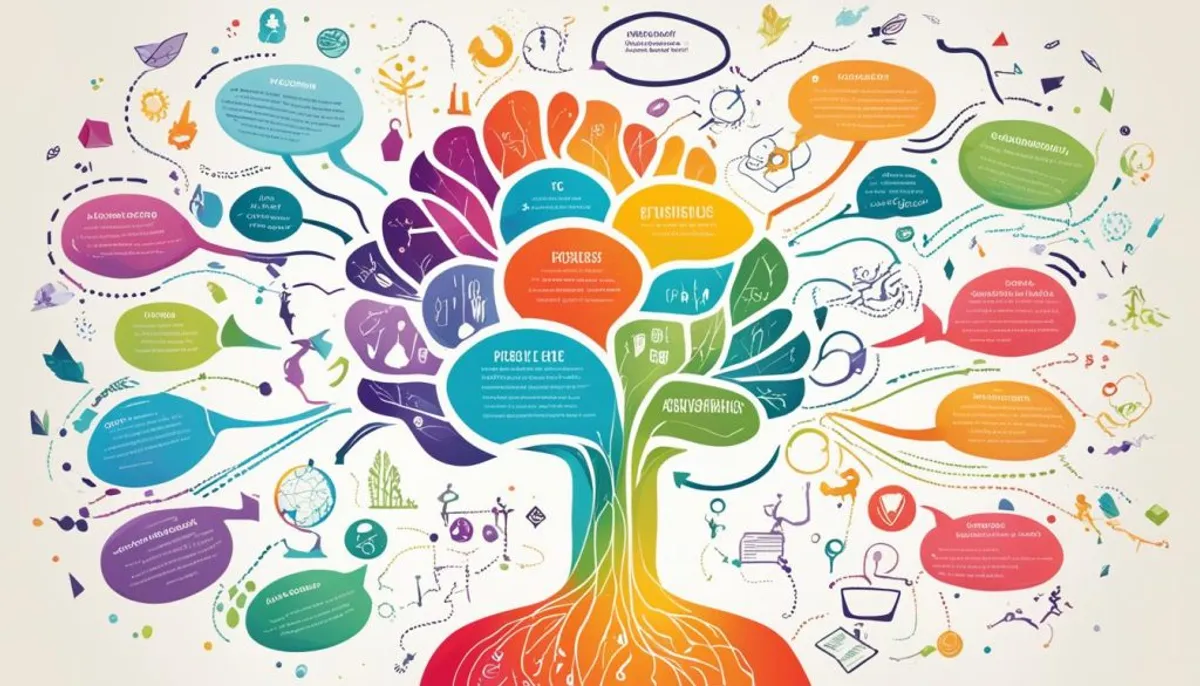Learning general knowledge is very useful. It helps to succeed in various fields. This includes exams, work, and developing one's critical thinking.
There are simple methods to learn progressively. These methods allow for long-term retention of knowledge.

General knowledge encompasses a wide range of knowledge. It covers areas such as literature, botany, and history. It goes beyond facts to connect this knowledge.
Learning general knowledge means becoming more open and curious. It is a process of continuous learning that adapts over time.
What is general knowledge?
General knowledge is more than just a simple accumulation of facts. It encompasses a variety of knowledge. This knowledge touches on areas such as literature, botany, architecture, and many others.
Being well-informed does not just mean knowing facts and dates. One must also know how to make connections between this knowledge. This allows for a broader and more nuanced view of the world.
| Discipline | Examples of topics |
|---|---|
| Literature | Great authors, literary movements, analysis of works |
| Sciences | Scientific discoveries, theories, technological innovations |
| History | Historical figures, significant events, social changes |
| Geopolitics | International conflicts, geopolitical issues, global institutions |
In summary, general knowledge goes beyond erudition. It consists of connecting different fields of knowledge. This enriches our understanding of the world and facilitates discussions on various subjects.
Why improve your general knowledge?
Improving your general knowledge brings many benefits. It helps to better understand the complex world and to have a critical perspective on events. A good general knowledge is also crucial for succeeding in exams and standing out at work.
Moreover, enriching your knowledge out of curiosity is good for the soul. Understanding areas like literature, geography, political science, or architecture enriches our lives. It allows us to better appreciate cultural works and to see the world from a new perspective.
| Benefits of good general knowledge | Examples |
|---|---|
| Understanding the complex world | Adopting a critical perspective on current events |
| Asset for professional success | Standing out in exams and assessments |
| Personal growth | Better appreciating cultural works |

In conclusion, developing your general knowledge is an investment that pays off. It is about understanding the world, succeeding professionally, and nurturing your intellectual curiosity.
Defining your areas of interest
To improve your general knowledge, focus on specific areas of interest. First, identify the fields related to your studies, exams, or professional goals. This knowledge is essential for your success.
You can also explore current topics or passions that excite you. This will enrich your mind and help you grow.
Topics related to your studies and professional goals
- Dive deeper into themes related to your field of study or upcoming exams.
- Learn about the skills and knowledge required in your industry.
- Identify cross-cutting topics useful for your professional career.
Current topics and personal passions
Additionally, explore current topics or themes that excite you. This will strengthen your critical thinking and nourish your curiosity.
| Areas of interest | Description |
|---|---|
| Global geopolitics | Understanding the issues and developments of international relations. |
| Technological innovations | Staying informed about advances in science and technology. |
| Arts and culture | Discovering and deepening your knowledge of different forms of artistic expression. |
By defining your areas of interest, you will build a rich general knowledge. This will meet your needs and aspirations.
How to learn general knowledge
To enrich your general knowledge, start by learning a topic in depth. Use popularization resources for this. They will provide you with the general information needed before diving into the specific topics that excite you.
Building solid foundations
Start by reading books or articles of popularization. They will give you an overview of a field. These summary resources will help you grasp key concepts and learn the terminology.
Deepening progressively
After understanding the basics, you can move on to more specific topics according to your interests. For this, use more detailed sources such as reference books, documentaries, or academic articles.
This progressive method avoids getting lost in details. It helps you build a solid general knowledge.
The tools for daily learning
Reading is an effective way to develop your general knowledge. You can read books, the press, or magazines. These mediums offer quality information, written by experts.
Using multimedia resources such as documentaries, podcasts, or popularization YouTube channels enriches learning. These formats provide an interactive and dynamic approach to informing and learning.
Reading, a must
Reading is a versatile way to enrich your knowledge. Books, the press, and magazines allow you to dive into topics in detail. They offer an immersive experience conducive to reflection.
Diversifying multimedia resources
Multimedia resources such as documentaries, podcasts, and popularization YouTube channels add a visual and auditory dimension. These interactive formats help to understand and memorize information. They offer a dynamic approach to learning.
| Learning tools | Advantages |
|---|---|
| Books, press, magazines | Detailed information and expertise of authors |
| Documentaries, podcasts, YouTube channels | Interactive, visual, and auditory formats |
Assimilating and conveying your knowledge
After learning about various topics, it is essential to know how to assimilate and convey them well. This will help you have a critical perspective on what you have learned. You will also be able to share your knowledge clearly.
Confronting viewpoints
Start by examining different sources of information on a topic. Compare opinions and analyses to gain a complete view. This will help you assimilate knowledge deeply.
Practicing conveying knowledge
Practice often to convey your knowledge. Do this in discussions or with popularization exercises. This will improve your communication and teaching skills.

By combining a critical perspective and practice, you will master your knowledge of general culture. This will be useful in both professional and personal life.
A progressive approach
Improving your general knowledge takes time and perseverance. Start by learning the basics. Then, deepen your knowledge on the topics that excite you. This step-by-step method will help you build a solid general knowledge.
Gradually progress from beginner to expert level by enriching your knowledge step by step.
Be curious and open to continue learning. This attitude will allow you to acquire new knowledge. They will integrate into your culture sustainably.
RelatedRelated articles


